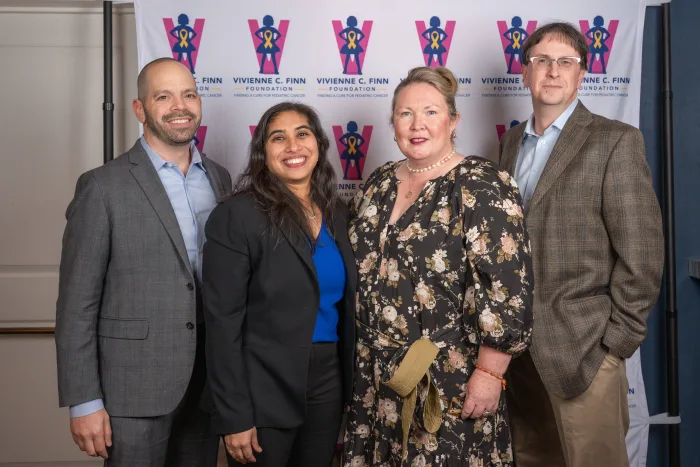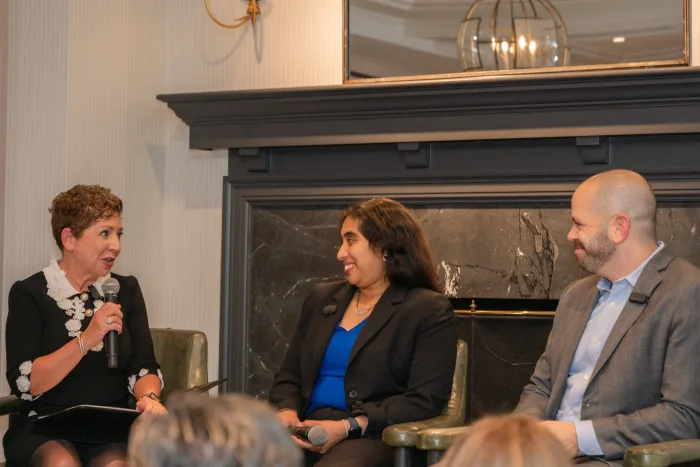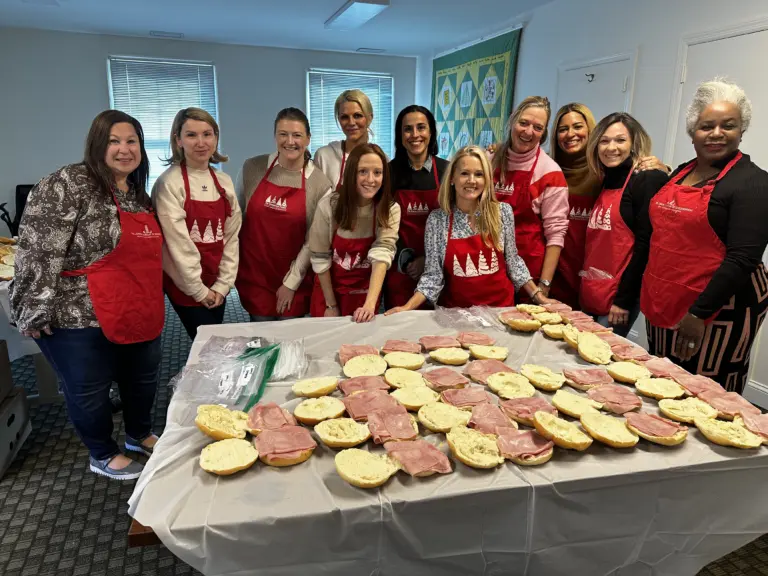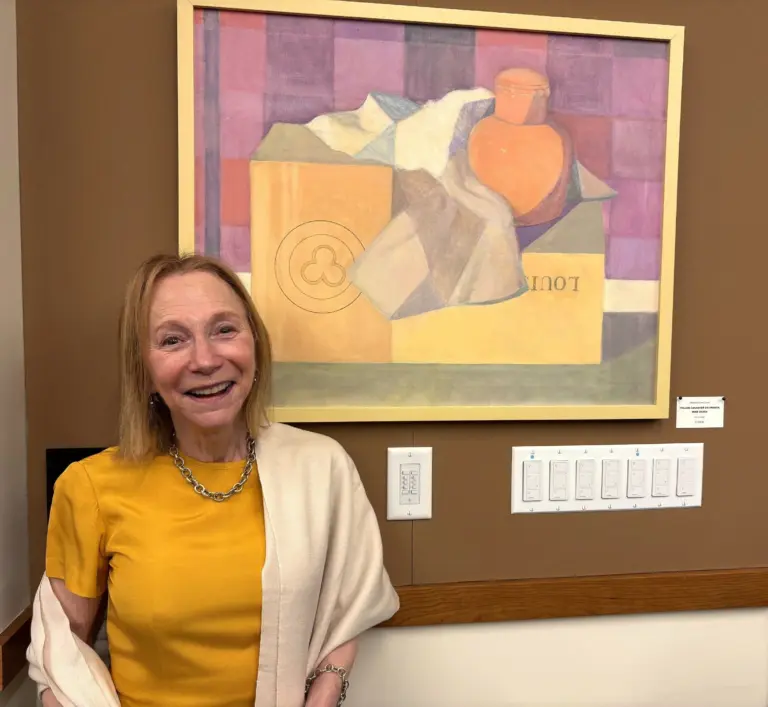
By Elizabeth Barhydt
This three-part series examines how one Greenwich family’s loss has sparked a broader effort to change the landscape of pediatric cancer care. The series follows the creation of the Vivienne C. Finn Foundation, launched in memory of 11-year-old Vivienne Cecilia Finn, who died in 2020 from a diffuse intrinsic pontine glioma, one of the most aggressive childhood brain tumors.
Part One traces Vivienne’s life and the path that brought her family from “Diagnosis Day” to the founding of the organization that now bears her name. Part Two brings readers inside Yale New Haven Children’s Hospital, where pediatric neuro-oncologists describe the medical, emotional and systemic challenges facing families. Part Three explores the foundation’s pillars—drug development, family support and legislative reform underway in Connecticut and Washington.
Through this series, readers will see how a single child’s story has inspired a mission aimed at better treatments, stronger support systems and lasting structural change.
The room fell silent when Mairead Finn stepped to the microphone and said, “Good evening and welcome to the inaugural Founders’ Dinner of the Vivienne C. Finn Foundation.” Around tables set with roses, rosary beads and plates soon to hold steak and icebox chocolate cake, friends and family listened as she retold the story that brought them there: the life and death of her daughter Vivienne, and the work now being done in her name.
Vivienne Cecilia Finn was, in her mother’s words, a Sacred Heart of Greenwich “lifer.” She was an artist, a prolific reader and writer, and, as Mairead noted with a brief smile, a “fashionista—that’s why I dressed nicely tonight.” She joined Girl Scouts and, as Mairead recalled, “she made us troop leaders.” She loved plays and musicals; her mother remembers reciting lines and songs from “Frozen” and “Annie” in the bathroom and says, “I swear we still hear her hum.”
That ordinary schoolgirl life changed on a date the family now calls “Diagnosis Day”: November 16. “November 16th will forever be one of the worst days of our lives,” Mairead told the audience. Vivienne had been diagnosed with a diffuse intrinsic pontine glioma, or DIPG, an aggressive brainstem tumor that primarily affects children. According to the National Cancer Institute, five-year survival rates for childhood cancers overall have risen from about 58 percent in the mid-1970s to more than 80 percent today, but for diffuse midline gliomas such as DIPG, the survival rate remains essentially zero.
From the moment of diagnosis, the family entered a world few parents expect to navigate. “Immediately we started a six-week course of radiation,” Mairead said. Vivienne took steroids to bring down inflammation. The family learned a new vocabulary: serial MRIs every six weeks and the “scanxiety” that accompanies each one; biopsies; genomic testing to “understand the DNA of the tumor she had so we could determine her next steps.”
Those next steps soon included clinical trials. The first took Vivienne and her parents to Memorial Sloan Kettering Cancer Center in New York for immunotherapy. For a time, there was cautious hope. Then, Mairead told the dinner guests, “sadly, September 6th, we saw that her tumor was growing again.” The family had to stop (“wash out” of) that study and begin looking for another option.
They found it in a small but promising drug then known as ONC201. But the company developing it was struggling to maintain its supply. “The parent company, unfortunately, was running out of supply for this drug,” Mairead said. For many families, that might have been the end of the possibility. Instead, the Finns stepped into a role few bereaved parents envision.
“The Finn Family Foundation decided to make an investment into the drug company to allow them to continue production and also allow us to open an arm of the trial up at Yale,” Mairead said. She described “badgering Yale” and pressing neurologist Nicholas Blondin to add Vivienne’s oncologist, Dr. Asher Marks, as a fellow to the pediatric arm of an expanded-access trial.
“You all know the result,” she told the room. “Vivienne didn’t last four months after this trial. She died March 10th.” She was 11. But Mairead insists her daughter was “a pioneer for science.” In August 2025, the Food and Drug Administration granted accelerated approval to dordaviprone, the drug formerly known as ONC201, as the first systemic therapy for certain diffuse midline gliomas.
“If you can believe it,” she added, “this is somewhat sad—it’s only the seventh drug that is appropriate for the biology of a child.” That scarcity of childspecific cancer drugs, and the slow, expensive process of bringing new ones forward, became the first pillar of the foundation that now bears Vivienne’s name: funding drug development so that an “eighth drug for children” follows ONC201 more quickly than the previous seven.
The second pillar grew out of another set of numbers. “Did you know that one in four families lose about 40% of their income?” Mairead asked. A parent suddenly spending days and nights at doctor’s appointments, imaging suites and neurosurgical consultations can lose a job. A mortgage and utilities do not wait. She recalled once rushing to Yale and relying on toiletry bags and a shower at the Ronald McDonald House, calling those simple items “invaluable for people that are rushing out the door with a child that’s sick.”
On the Vivienne C. Finn Foundation website, built by family friend Nalini Goolsarran, founder of EdgeSpace Marketing, a resource page now lists practical help for families “currently battling pediatric cancer, any form of cancer.”
A third pillar looks beyond the hospital and the household to policy and will be the focus of later coverage. For this night, Mairead returned often to the child at the center of it all. On each table lay rosary beads. “Vivienne wore this when she did her MRIs,” she said. “I do believe it gave her a lot of peace and consolation. It’s one of my prized pieces of jewelry because it was the last thing she clutched whenever she died.” Guests were invited to take a rosary home and, if they ever needed courage, to “hold onto the cross, see what happens.”
Near the end of her remarks, Mairead reached for an image that now anchors the foundation’s work. “We all live under the shade of trees planted by others,” she said. “Tonight I want to plant some on Vivienne’s behalf.” She asked those gathered to make childhood cancer part of their own family’s giving and reminded them that “children make up 25% of the American population and they are truly 100% of our future.”
Then she invited everyone to eat. “We’re going to bring out for you some of her favorites,” she said. “Juicy steak and icebox chocolate cake.” Around the room, people rose, talked and began to tell one another the story Mairead had just asked them to carry: the story of a girl who loved art and musicals, whose short life helped bring a new drug to children with a brutal disease, and whose name now sits atop a foundation determined to ensure that fewer families ever have a Diagnosis Day of their own.
The next installment in this series will appear in the upcoming issue of The Sentinel. Part Two turns from the family’s story to the physicians who cared for Vivienne, offering an inside view of Yale’s pediatric neuro-oncology program. Readers will hear directly from the doctors who met the Finns in the earliest days after diagnosis, learn how clinical decisions are made for children with rare brain tumors, and see the financial and emotional pressures families confront inside the system.





